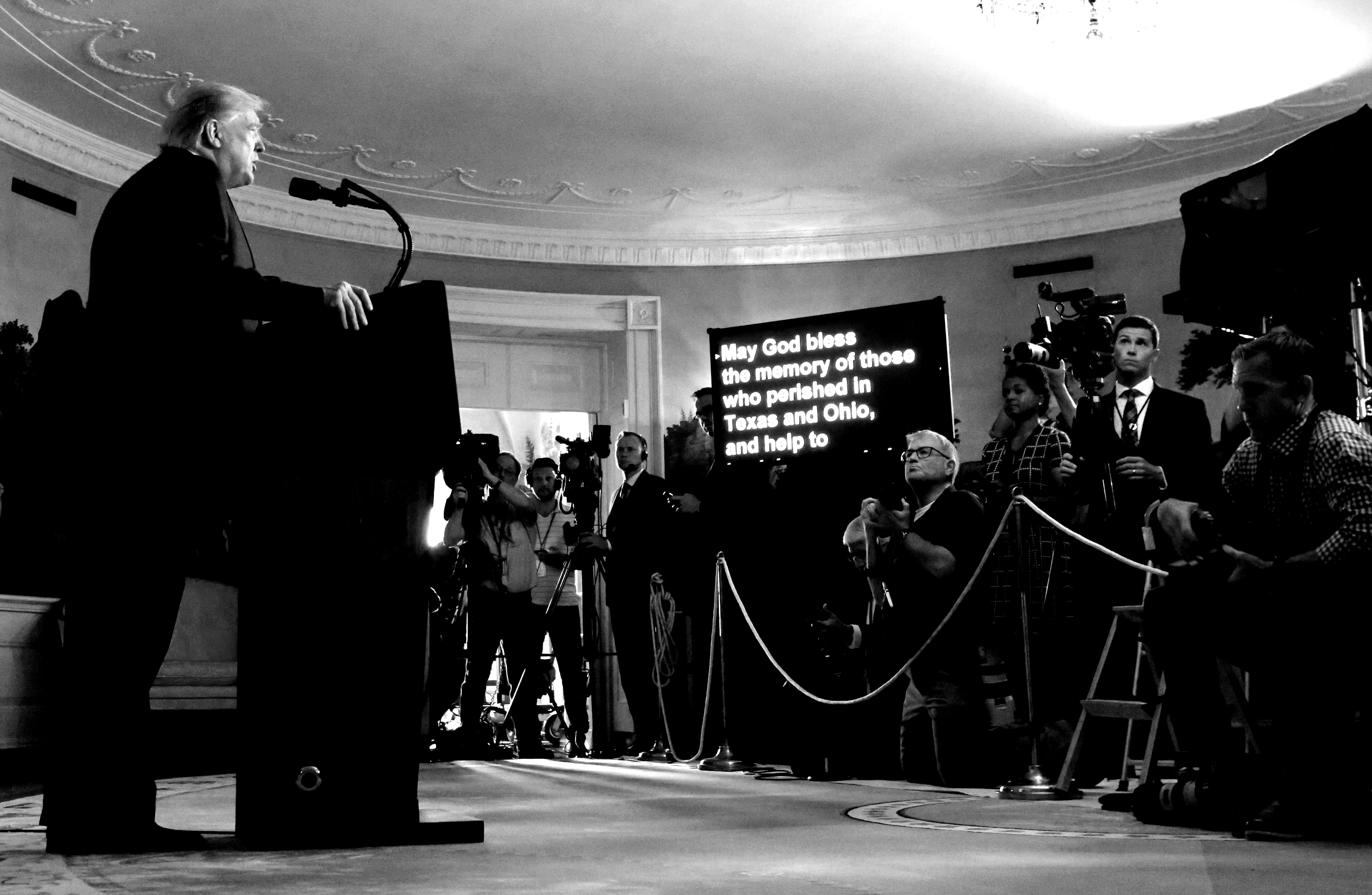Blaming evil
The massacre in El Paso was not the product of inexplicable forces


A free daily email with the biggest news stories of the day – and the best features from TheWeek.com
You are now subscribed
Your newsletter sign-up was successful
This is the editor's letter in the current issue of The Week magazine.
At a time when Americans agree about little, it's safe to say that mass shootings, and those who perpetrate them, are evil. "He's just an evil person," Mayor Dee Margo of El Paso said of the white nationalist who killed 22 people and wounded 26 more. "Unspeakable evil," agreed Sen. Ted Cruz. "We are outraged and sickened by this monstrous evil," intoned President Trump, in describing both the El Paso and Dayton mass shootings. But what, precisely, do people using this word mean? As Megan Garber points out this week at The Atlantic, blaming abstract "evil" serves to suggest that America's ongoing massacres are inexplicable and unpreventable. It absolves gun laws. It frees from blame the political leaders and cable TV hosts who have fueled white "replacement" fears and dehumanized the very "invaders" the El Paso gunman used his assault rifle to exterminate. "Evil, used as a talking point, both throws up its hands and washes them," Garber says.
The best definition of evil I've heard comes from Columbia University professor Andrew Delbanco, who has devoted much of his life to its study. Evil, he has concluded, springs from "the absence of imaginative sympathy for other human beings" — a choice not to care about their suffering. The potential for evil in all of us can be activated, Delbanco says, when people come to believe that inflicting pain and death on others serves a higher purpose, such as establishing ISIS' caliphate or preserving the white race's dominance. In El Paso, witnesses said, the gunman stalked his prey with cold fury, shooting two children, many grandparents, a couple who shielded their baby with their bodies, and several weeping people who pled with him, "Por favor. No." In his manifesto, the gunman said that only mass killings can repel "the Hispanic invasion of Texas" and "remove the threat of the Hispanic voting bloc." His acts were evil, but not inexplicable.
The Week
Escape your echo chamber. Get the facts behind the news, plus analysis from multiple perspectives.

Sign up for The Week's Free Newsletters
From our morning news briefing to a weekly Good News Newsletter, get the best of The Week delivered directly to your inbox.
From our morning news briefing to a weekly Good News Newsletter, get the best of The Week delivered directly to your inbox.
A free daily email with the biggest news stories of the day – and the best features from TheWeek.com
William Falk is editor-in-chief of The Week, and has held that role since the magazine's first issue in 2001. He has previously been a reporter, columnist, and editor at the Gannett Westchester Newspapers and at Newsday, where he was part of two reporting teams that won Pulitzer Prizes.
-
 Why is the Trump administration talking about ‘Western civilization’?
Why is the Trump administration talking about ‘Western civilization’?Talking Points Rubio says Europe, US bonded by religion and ancestry
-
 Quentin Deranque: a student’s death energizes the French far right
Quentin Deranque: a student’s death energizes the French far rightIN THE SPOTLIGHT Reactions to the violent killing of an ultraconservative activist offer a glimpse at the culture wars roiling France ahead of next year’s elections.
-
 Secured vs. unsecured loans: how do they differ and which is better?
Secured vs. unsecured loans: how do they differ and which is better?the explainer They are distinguished by the level of risk and the inclusion of collateral
-
 Epstein files topple law CEO, roil UK government
Epstein files topple law CEO, roil UK governmentSpeed Read Peter Mandelson, Britain’s former ambassador to the US, is caught up in the scandal
-
 Iran and US prepare to meet after skirmishes
Iran and US prepare to meet after skirmishesSpeed Read The incident comes amid heightened tensions in the Middle East
-
 Israel retrieves final hostage’s body from Gaza
Israel retrieves final hostage’s body from GazaSpeed Read The 24-year-old police officer was killed during the initial Hamas attack
-
 China’s Xi targets top general in growing purge
China’s Xi targets top general in growing purgeSpeed Read Zhang Youxia is being investigated over ‘grave violations’ of the law
-
 Panama and Canada are negotiating over a crucial copper mine
Panama and Canada are negotiating over a crucial copper mineIn the Spotlight Panama is set to make a final decision on the mine this summer
-
 Why Greenland’s natural resources are nearly impossible to mine
Why Greenland’s natural resources are nearly impossible to mineThe Explainer The country’s natural landscape makes the task extremely difficult
-
 Iran cuts internet as protests escalate
Iran cuts internet as protests escalateSpeed Reada Government buildings across the country have been set on fire
-
 US nabs ‘shadow’ tanker claimed by Russia
US nabs ‘shadow’ tanker claimed by RussiaSpeed Read The ship was one of two vessels seized by the US military
